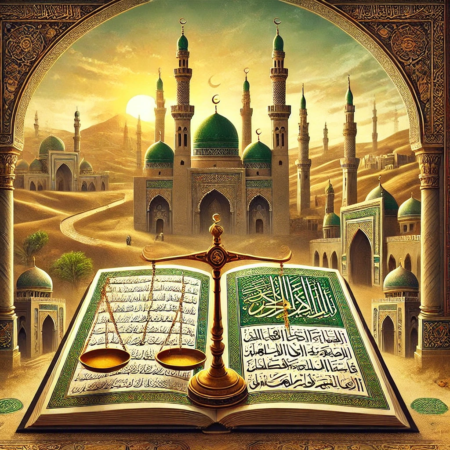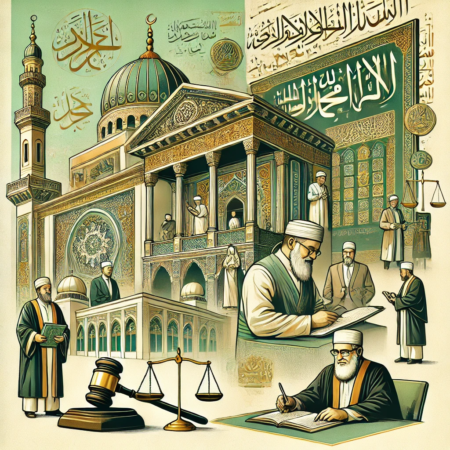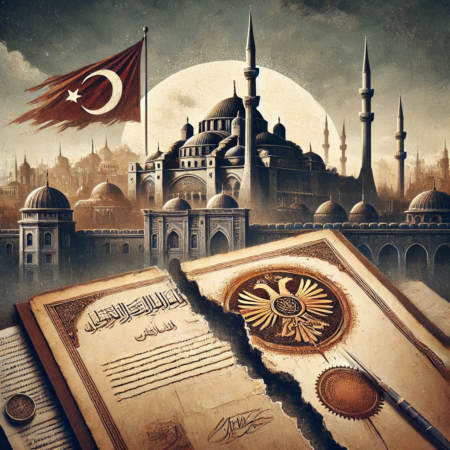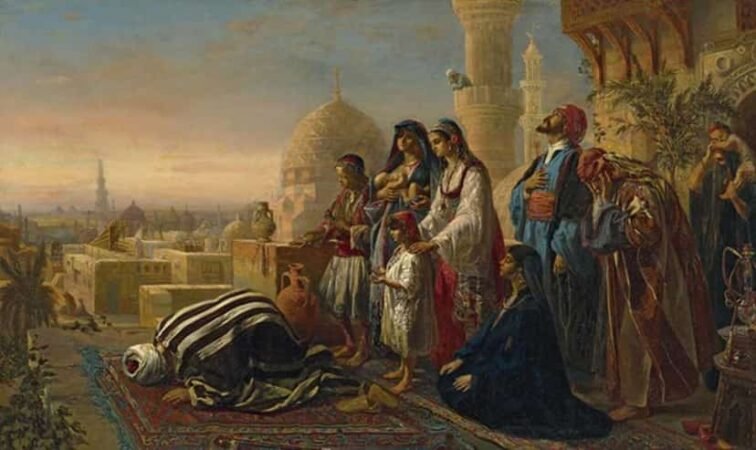Islam is a divine religion that was revealed to the Prophet Muhammad (peace be upon him) in the 7th century AD. It is a religion of nature and began in the Arabian city of Mecca. The history of Islam is actually a great story of human history that includes stages of spiritual progress, scientific revolution, cultural greatness, and political rise.
Table of Contents
The Beginning History of Islam
Islam began in 610 AD when the first revelation was revealed to the Prophet Muhammad (peace be upon him). The angel Gabriel (peace be upon him) recited the first revelation in the Cave of Hira, “Read in the name of your Lord who created.” After this, the Prophet (peace be upon him) began preaching and initially invited only close relatives and friends. As time passed, Islam started spreading among the people of Mecca, despite the severe opposition from the Quraysh tribe.
Meccan and Medinan Period
Meccan Period (610-622 AD)
This period was a time of hardship and trials. The Prophet Muhammad (peace be upon him) and his followers faced persecution, economic boycotts, and social ostracism from the Quraysh. Many early Muslims, including Bilal ibn Rabah and Yasir ibn Amir, were tortured for accepting Islam. However, despite these challenges, the Prophet (peace be upon him) continued his mission with patience and perseverance. The migration to Abyssinia (modern-day Ethiopia) took place during this period, where King Negus granted refuge to Muslim migrants.
The event of the Isra and Miraj (the Night Journey and Ascension) history also occurred during this time, where the Prophet Muhammad (peace be upon him) was taken on a miraculous journey to the heavens. This was a significant spiritual moment in Islamic history that strengthened the faith of believers.
Madani Period (622-632 AD)
After the migration (Hijrah) to Medina, the Prophet Muhammad (peace be upon him) established an Islamic state based on the principles of justice, brotherhood, and unity. The Constitution of Medina was drafted, ensuring religious freedom and coexistence among Muslims, Jews, and other communities.
During thishistory period, Islam gained momentum, and several decisive battles took place, including the Battle of Badr (624 AD), Battle of Uhud (625 AD), and Battle of the Trench (627 AD). The Treaty of Hudaybiyyah in 628 AD was a turning point, leading to the eventual conquest of Mecca in 630 AD.
Rightly Guided Caliphate (632-661)
After the passing of Prophet Muhammad (peace be upon him), the era of the Rightly Guided Caliphs began. This

period is known for the expansion of Islam, administrative reforms, and the preservation of Islamic teachings.
Hazrat Abu Bakr Siddiq (632-634 AD)
- Faced the challenge of wars of apostasy (Riddah Wars).
- Initiated the collection of the Holy Quran in written form.
- Expanded the Islamic territories through military campaigns.
Hazrat Umar Farooq (634-644 AD)
- Led major conquests, expanding Islam into Persia, Byzantine lands, and Egypt.
- Established the judicial and administrative system, dividing the empire into provinces.

- Introduced public welfare projects, including roads, wells, and social services.
Hazrat Uthman Ghani (644-656 AD)
- Supervised the compilation of the Quran into a standard version.
- Islam spread further into North Africa and Central Asia.
- Faced internal dissent, leading to civil unrest.
Hazrat Ali Karam Ullah Wajjah (656-661 AD)
- His caliphate was marked by internal conflicts, including the Battle of Jamal (656 AD) and Battle of Siffin (657 AD).
- The rise of the Khawarij sect took place during this time.
- Despite challenges, he emphasized justice and knowledge.
The Umayyad and Abbasid Periods
Umayyad Dynasty (661-750 AD)
- Established by Muawiyah ibn Abi Sufyan, shifting the capital to Damascus.
- Expanded Islam to Spain, North Africa, Central Asia, and the Indian subcontinent.
- Built important architectural marvels, including the Dome of the Rock in Jerusalem.
Abbasid Dynasty (750-1258 AD)
- Moved the history capital to Baghdad, which became the center of Islamic learning.
- Flourishing of science, mathematics, medicine, and philosophy (Golden Age of Islam).
- Scholars like Al-Farabi, Al-Khwarizmi, and Ibn Sina contributed greatly to knowledge.
- House of Wisdom (Bayt al-Hikma) was established.
The Ottoman Caliphate and the Rise of Islam
The Ottoman Empire (1299-1924 AD) played a significant role in preserving and spreading Islam. Some key achievements include:
- Conquest of Constantinople (1453 AD) by Sultan Mehmed II (Mehmed the Conqueror).
- The expansion of the empire to Southeast Europe, North Africa, and the Middle East.
- Promotion of Islamic culture, architecture, and jurisprudence.
Decline and Revival
- The decline of the Ottoman Empire due to internal corruption, European colonization, and military defeats.
- In 1924, the Caliphate was officially abolished, leading to the fragmentation of the Muslim world.

- Despite challenges, many Islamic nations have gained independence and continue to strive for unity, progress, and social development.
Conclusion
The history of Islam is a saga of faith, resilience, knowledge, and justice. From its humble beginnings in Mecca to the rise of great Islamic civilizations, Islam has contributed immensely to world history. Even today, its teachings provide guidance, moral values, and a sense of justice and brotherhood. As the world progresses, the unity and revival of Islamic teachings remain vital for the future of the Muslim ummah.
_____________________
YOU MAY ALSO LIKE:


